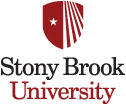
Spring 2023
General Information
Syllabus
Homeworks
Exams
Syllabus
What follows is a tentative syllabus for the class, taken from the Graduate Handbook.The actual material covered in class can be found in Google Docs. What follows is a tentative syllabus for the class, taken from the Graduate Handbook:
- Linear and multilinear algebra (4 weeks)
- Minimal and characteristic polynomials. The Cayley-Hamilton Theorem.
- Similarity, Jordan normal form and diagonalization.
- Symmetric and antisymmetric bilinear forms, signature and diagonalization.
- Tensor products (of modules over commutative rings). Symmetric and exterior algebra (free modules). HomR(- , -) and tensor products.
References: Roman, Chapters 8-10 and 14, Lang, Chapters XV and XVI; Dummit and Foote, Chapter 11.
- Rudiments of homological algebra (2 weeks)
- Categories and functors. Products and coproducts. Universal objects, Free objects. Examples and applications.
- Exact sequences of modules. Injective and projective modules. HomR(- , -), for R a commutative ring. Extensions.
References: Lang, Chapter XX; Dummit and Foote, Part V, Chapter 17.
- Representation Theory of Finite Groups (2 weeks)
- Irreducible representations and Schur's Lemma.
- Characters. Orthogonality. Character table. Complete reducibility for finite groups. Examples.
References: Lang, Chapter XVIII; Dummit and Foote, Part VI; Serre.
- Galois Theory (6 weeks)
- Irreducible polynomials and simple extensions.
- Existence and uniqueness of splitting fields. Application to construction of finite fields. The Frobenius morphism.
- Extensions: finite, algebraic, normal, Galois, transcendental.
- Galois polynomial and group. Fundamental theorem of Galois theory. Fundamental theorem of symmetric functions.
- Solvability of polynomial equations. Cyclotomic extensions. Ruler and compass constructions.
Graded problem sets and exams will be handed back in lecture. If you cannot attend the lecture in which a problem set or exam is handed back, it is your responsibility to contact your instructor and arrange a time to pick up the work (typically in office hours).
You are responsible for collecting any graded work by the end of the semester. After the end of the semester, the instructor is no longer responsible for returning your graded work.
If you have a physical, psychological, medical, or learning disability that may impact your course work, please contact the Student Accessibility Support Center, Stony Brook Union Suite 107, (631) 632-6748, or sasc@stonybrook.edu. They will determine with you what accommodations are necessary and appropriate. All information and documentation is confidential. Students who require assistance during emergency evacuation are encouraged to discuss their needs with their professors and the Student Accessibility Support Center. For procedures and information go to the following website: "https://ehs.stonybrook.edu//programs/fire-safety/emergency-evacuation/evacuation-guide-disabilities and search Fire Safety and Evacuation and Disabilities.
Each student must pursue his or her academic goals honestly and be personally accountable for all submitted work. Representing another person's work as your own is always wrong. Faculty is required to report any suspected instances of academic dishonesty to the Academic Judiciary. Faculty in the Health Sciences Center (School of Health Technology & Management, Nursing, Social Welfare, Dental Medicine) and School of Medicine are required to follow their school-specific procedures. For more comprehensive information on academic integrity, including categories of academic dishonesty please refer to the academic judiciary website at http://www.stonybrook.edu/commcms/academic_integrity/index.html
Stony Brook University expects students to respect the rights, privileges, and property of other people. Faculty are required to report to the Office of Student Conduct and Community Standards any disruptive behavior that interrupts their ability to teach, compromises the safety of the learning environment, or inhibits students' ability to learn. Faculty in the HSC Schools and the School of Medicine are required to follow their school-specific procedures. Further information about most academic matters can be found in the Undergraduate Bulletin, the Undergraduate Class Schedule, and the Faculty-Employee Handbook.